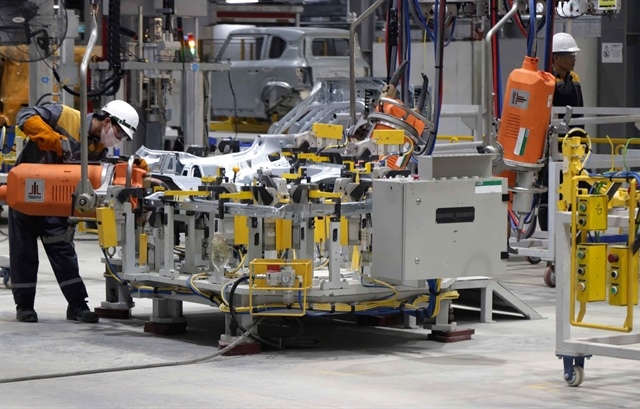In Vietnam, imported feed material outdoes domestic produce
In Vietnam, imported feed material outdoes domestic produce
Vietnam has been spending big on imported animal feed and several types of agro-products for fodder production, mounting enormous pressure on domestic produce.
Statistics from the Ministry of Agriculture and Rural Development show that the country has paid US$2.2 billion for foreign animal feed and relevant material in the year to date.
In the same period, local businesses have imported 4.91 million metric tons of corn for animal feed production.
In 2016, Vietnam imported eight million metric tons of corn for the manufacturing of animal feed, while the total amount of corn produced domestically was only 5.3 million metric tons.
The nation also purchases from foreign countries a large amount of soybean, wheat, bone powder, and vitamins for fodder production on a yearly basis.
According to Pham Duc Binh, vice-chairman of the Vietnam Feed Association, domestic corn cannot compete with the cheap price of foreign produce, which sells only at VND4,400 ($0.19) per kilogram.
Vietnamese soybean has been suffering a similar fate, he added.
“Many feed manufacturers in Vietnam have preferred imported corn thanks to low cost and higher quality,” Binh elaborated.
The demand for overseas material in the prduction of fodder has ben increasing becasue of limited domestic supply, the director of a husbandry business said, adding that using affordable imported ingredients can also help lower the overall price in the livestock industry.
“It can open up an opportunity for Vietnamese products such as meat and eggs to be exported to other nations,” the director continued.
Thanks to low tax rates on feed material, people working in animal husbandry have been able to minimize their expenditure, thus increasing their profit, said Nguyen Hoang Ha, director of a fodder manufacturer in the southern province of Binh Duong.
Local farmers, on the other hand, have been suffering as their products, especially corn and cassava, cannot compete with imported produce in terms of prices.
They have no other choice but to sell products at lower rates, Ha stated.
He suggested that the state should have certain policies to protect farmers, stressing that the country cannot rely entirely on foreign material in the production of animal feed.
“Other countries in Southeast Asia have implemented higher tax rates and set stricter conditions to create a balance between domestic and imported produce,” Ha elaborated.
Relaxed procedures regarding the importation of feed material can also pose a risk of low-quality products.
According to insiders, some businesses have been purchasing substandard bone and meat powder and reselling them to local feed producers, which may ultimately compromise product quality and lead to epidemics.
Vietnamese businesses import 300,000 to 400,000 metric tons of such powder to produce feed for husbandry and aquaculture, said Nguyen Xuan Duong, deputy head of the Department of Livestock Production.




















